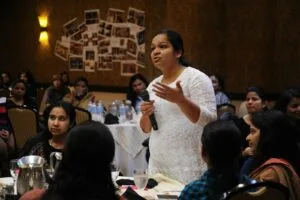I recently listened to a podcast that made me reflect deeply on my own journey with social anxiety. The speaker talked about how their fear of interacting with others held them back from doing simple things like visiting the doctor or speaking to someone at a store. It reminded me of my own struggles growing up, and how much of my life has been shaped by the slow process of building confidence and finding my voice.
Facing Early Challenges with Confidence
Growing up, I was a shy kid who struggled to speak up. It wasn’t unusual for kids to be a little reserved, but for me, it went beyond that. I remember one incident that really stayed with me. My parents owned a small grocery store, and one day, my dad and I were at a wholesaler, loading up trolleys of items for the shop. As we were packing everything into the van, an employee there—just as a joke—grabbed one of our trolleys and walked away with it.
I saw it happen, but I didn’t say a word. When the guy came back, he laughed and said something like, “I could’ve walked away with this, and you wouldn’t have stopped me!” My dad laughed, but later he looked at me and asked why I hadn’t done anything. I didn’t really have an answer—I just felt frozen. Back then, I didn’t have the confidence to speak up, even in situations where it seemed obvious to do so.
A Turning Point at My First Job
At first, it felt daunting, but over time, I got used to it. Each interaction, no matter how small, helped me realize that people were listening—and that what I had to say mattered, even if it was just, “Can I take your order?” Little by little, I came out of my shell and found myself talking more easily.
Finding My Voice Through New Experiences
As I moved into university and started my career, there were more situations that pushed me to speak up. I remember giving presentations in class—standing in front of a room full of people, feeling every bit of my anxiety. At first, I would just memorize lines and say them as quickly as possible. But over time, I realized that these were opportunities to connect with people, to share my perspective.
The real change happened when I started believing in what I had to say. I noticed that if I spoke with confidence, people listened. This shift in mindset helped me feel more empowered, and I found that when I spoke with conviction, others were more likely to engage. I was no longer just going through the motions—I was finally starting to express myself fully.
Building Confidence: Tips for Overcoming Social Anxiety
- Start Small: My journey started with small interactions, like chatting with customers, people. Small steps can build the foundation of your confidence.
- Challenge Yourself: Putting myself in situations that required me to speak up—like university presentations—was uncomfortable but essential. Sometimes, growth happens in those moments of discomfort.
- Believe in Your Own Voice: This was the biggest game-changer for me. Once I started believing in what I was saying, I felt empowered to share my ideas, opinions, and thoughts with others.
Conclusion
Overcoming social anxiety and building confidence doesn’t happen overnight. It’s a journey of small steps, occasional setbacks, and ultimately discovering that your voice matters. If you’ve struggled with social anxiety or lack of confidence, know that you’re not alone. Have you had similar experiences? I’d love to hear your story in the comments below!




